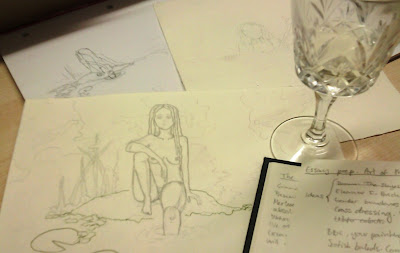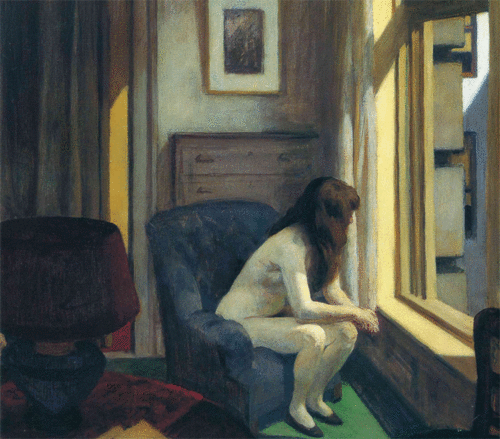Irriteret: min hud kravler over mine knogler, langsomt, mine indre organer murrer, min højre nyre er stadig ikke overbevist om, hvad det er, den skal her i livet, ligesom jeg heller ikke selv er, ikke mere siden d. 16. september. Jeg har i stedet, primært, været syg. Fordi et eller andet sted må man jo stoppe, og når man er ustoppelig, så må det ske igennem organernes fejlfunktion. Ha. Host. Har også læst, er, sådan set, forfærdeligt interesseret, samtidig holdt tilbage, i både 1900 Wien, de sidste romantikere og æsteticismens småreligiøse tendenser, stadigvæk alt, hvad der er centreret omkring lidelse og længsel, fængslende indrammet i Klimtguld og vildtvoksende plantegrønt med dertil rådnende idealer, der er megen skønhed her i verden. Mit projekt:kunsterliverkunst, også velsignet med samme slags spænding som i mit "arbejde", jeg er gartner, jeg fremdyrker det og i min have, der er dunkelt, her er ingen helt sikre på, hvad de vil, hvem de er, hvor de er på vej hen, i en eller anden forvirring af romantiske forviklinger, hvor der ikke er skelnes kvalitativt mellem relationstyper eller følelser, så længe det kan mærkes. Jeg gennemgår alle slags eksperimenter, så jeg til enhver tid kan sige, at jeg har smagt livet, jeg har set verden. Det er selvfølgelig en lille smule bullshit, men også kun lidt, for jeg holder som regel tilbage, en buket af hemmeligheder, som jeg nogle gange kommer til at vise, og så bliver folk bange, og så har man mistet dét venskab, man må passe på. Til gengæld for diskretion får jeg almindelig respekt, det er markedsværdi, det kan byttes til mange ting. Eksisterer med en slags kontinuerlig intensitet, fuldstændigt uundværlig, men hele tiden nærmende sig en ny normal, kan let glemme, at alt, hvad der gør det værd, i virkeligheden er helt vildt meget mere end hvad der normalt forventes, at hvis jeg falder ned, hvis jeg pludselig en dag åbner øjnene og der ikke er flere giftplanter, så vil der heller ikke være nogen skønhed tilbage. Jeg kan ikke nøjes med hverdagen, den generer, den strammer, den er det rene polyester, eller nej, den er fin, den er nødvendig, men det går jo ikke. Jeg kan ikke rende rundt og præstere noget som helst ekstraordinært på en diæt af høfligheder og lejlighedsvis orientalisme.
Jeg er træt af ikke allerede at vide, træt af pludselige opblomstringer, der forsvinder igen med det samme som gløder i damp, træt af at opmønstre panik blot for at gøre det, for situationer der sejler i forbipasserende, livsflod og snart vil være væk.







